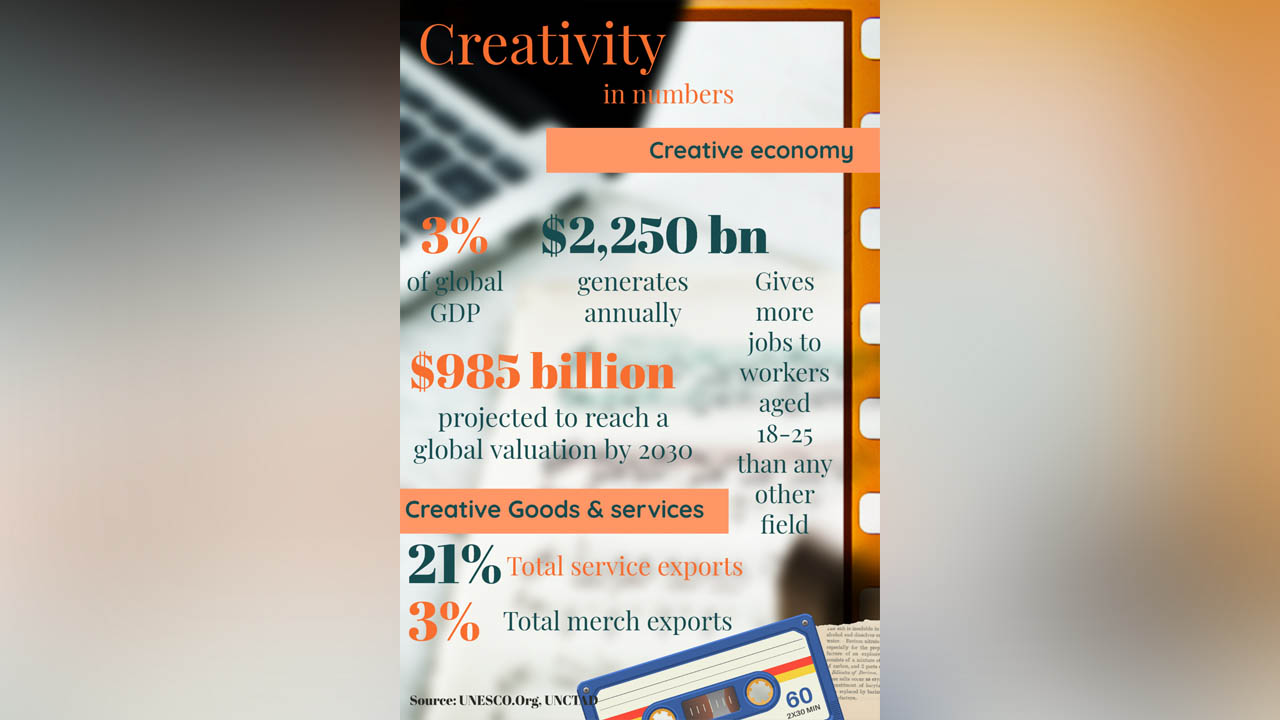Sustainability Today: Preserve, protect, and partake in the arts
 CREDIT: FANSHAWE SUSTAINABILITY
CREDIT: FANSHAWE SUSTAINABILITYAs part of building a sustainable world, we need to embrace the arts and instill a creative thought process in people.
What makes us human?
Our conscience; our intelligence. And from these emerges creativity that defines our history, society, and our diverse world.
A sustainable world will require creative thought processes that bring to life ideas and solutions for posterity – in all dimensions, including intellectually. At the core this structure is an expression of oneself; and nothing does it better than music. Think of Madonna’s Vogue and Bohemian Rhapsody from Queen. Music is a universal language that unites us all, it’s part of every culture and is an inseparable part of our lives.
Do you see your future self without it?
It should be part of the sustainable future. Music is in the background helping to achieve the Sustainable Development Goals (see list below for more information). With regards to this, SDG 11.4 calls to “strengthen efforts to protect and safeguard the world’s cultural and natural heritage.” A report from The Centre of Music Ecosystems cites the fact that “nearly 40,000 songs are added to Spotify each day” and mentions Goldman Sachs’ prediction that revenue from live music would see an 18 per cent increase worldwide in 2022. Music can also be healing. It is a channel for expression of emotions. Cultures across the world have embraced it and tell their stories and histories through it. Artists can be advocates for change, protest and highlight issues such as Bob Marley, Rage Against Machine and Green Day’s 21 Guns. They can also be torchbearers of change; their voices can bring about change in people’s behaviour— some are even brand ambassadors of top companies and drive economic growth.
Looking at the enormous significance of creative economy, the UN General Assembly declared 2021 the International Year of Creative Economy for Sustainable Development. April 21 is observed as World Creative and Innovation Day. These days help spread awareness about the importance of creativity when artists and musicians’ creativity is stifled by those who profit off of them, often resulting in terrible outcomes. Their financial health is impacted by piracy and violation of intellectual property.
As part of building a sustainable world, we need to embrace the arts and instill a creative thought process in people. A simple way is to buy legal music, promote and support local art and artisans and perhaps even learn a new art form; music is said to have a profound effect on health and learning ability. This way we can foresee and build a future that not just looks sustainable but also sounds and feels like it, too.
Your guide to music and the SDGs from the Center for Music Ecosystems:
SDG 1: No poverty
El Sistema — providing training in music to impoverished youth (Venezuela).
SDG 2: No hunger
#LiveForLove — raising money for food banks (The UK).
SDG 3: Good health and wellbeing
Music in the workplace Week — awareness on health effects of music (The UK).
SDG 4: Quality education
PXP Festival — supporting underprivileged children (Germany).
SDG 5: Gender equality
Key Change — encourages music organizations to staff at least 50% women and underrepresented genders.
SDG 6: Clean water and sanitation
SPLASH events — waterkeeper Alliance’s efforts to utilize musician ambassadors to get the word out on preserving wetlands (Canada).
SDG 7: Affordable and clean energy
Future Energy Artists — solar farms projects to help local communities and make tours cleaner (Australia).
SDG 8: Decent work
Fair Play Scheme — support fair treatment of musicians (The UK).
SDG 9: Industry, innovation and infrastructure
Platform 61 — music-focused infrastructure (South Korea).
SDG 10: Reduced inequalities
Music Fusion — supports at-risk youth to write, record and release music (The UK).
SDG 11: Sustainable communities and cities
Performing Arts Readiness — supports programs to increase knowledge of performing arts (The USA).
SDG 12: Responsible consumption and production
Green Vinyl — making vinyl production cleaner (The Netherlands).
SDG 13: Climate action
Music Declares Emergency — musicians committing to reducing carbon footprint (The UK).
SDG 14: Life below Water
The Nile Project — music to inform people on protecting the Nile River.
SDG 15: Life on Land
Frequency Festival — a tree is planted for every tent (Austria).
SDG 16: Peace, justice and strong institutions
Child Soldiers Music Therapy Program — reacclimate former child soldiers in society (Uganda).
Dates to look forward to:
- Nov. 19: World Toilet Day
- Nov. 25: International Day for the Elimination of Violence against Women
- Nov. 30: Day of Remembrance for all Victims of Chemical Warfare
- Dec. 1: World AIDS Day
- Dec. 2: International Day for the Abolition of Slavery














